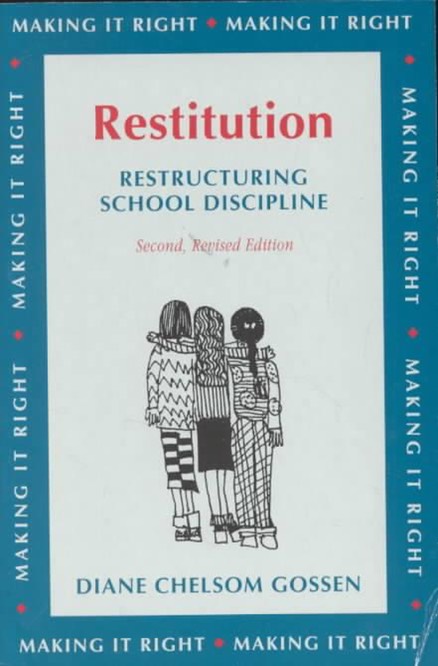
The principal’s voice was controlled steel. “Mrs. Brown, your son Rob will remain in my office until you arrive!”
The school has a firmly enforced No Bulling Policy. Rob had been pushing the limits, and this day he had ripped up another child’s art work and verbally savaged her in his fifth grade classroom.
When Mrs. Brown learned that her day had been interrupted because Rob refused to say he was sorry, she spilled her aggravation across the principal’s desk.
“You called me from work for this trivia? What difference does it make if he says he’s sorry? So he yelled at somebody. Kids do that. Anyway, Rob says that you have been hounding him lately.” The principal didn’t yield, “We have a No Bullying Policy in our school and Rob is expected to follow it.” Ron made sullen snorts and Mrs. Brown ramped up her anger.
“Let’s get this settled once and for all! You can call me at home in the evening after 8:00. You are not to call me at work, and, furthermore, you are not to ask him to apologize or to discipline him in any way without calling me first!” Mrs. Brown stomped out.
Poor Rob, getting a major dose of “you don’t have to be responsible” overindulgence.
Poor Mrs. Brown. She probably thinks she is being supportive of Rob, but she hasn’t a clue about how much support is enough.
Poor principal. She sighed and briefly considered the appeal of the help wanted sign at the accountant’s office. Instead she said, “Rob, your mom has a point. It’s silly to say you are sorry if you’re not. Instead I’m assigning you to observe in the Restitution Group every Tuesday at 10:30.”
“You mean instead of art class?”
“Yes. Do you know what restitution means?”
“I thought the word was retribution.”
The principal laughed. “No, not really. The Student Council has a group working on how to make restitution practices part of our school’s conflict resolution program. I want you to watch and listen and then give me a three- to five-minute report after each meeting. I know you are a quick learner, so I’ll be interested to hear what you observe.”
What Making Amends Means
So what does making amends mean? It means claiming what we have done wrong, deliberately or inadvertently, and doing whatever we can to make it right.
It is important to help children make amends starting at an early age. It helps them feel the power of being able to set things right. It teaches them how to rebuild connections. It builds their self-esteem.
Guidelines for Making Amends

Diane Chelsom Gossen's book, Restitution: Restructuring School Discipline, is written for use in schools, but it offers many examples of ways to help children make amends that parents can use at home. She points out that there are several elements in successful amend making. They do not have to be addressed in a specific order, nor will every single point apply in a given situation. The acts of restitution must be made by the offender and not forced by an adult from the outside.
Diane Chelsom Gossen offers these guidelines for making amends:
· The person making the amends must put forth effort.
· The amends made should support the amender's values or the family or school values
if the amender is young.
· The amends made must be related to the problem.
· The amends should help the amender become a better person.
· The amends must be satisfactory to the victim.
We all make mistakes. Making amends is a far more powerful way to fix things than saying “I’m sorry.” Learning that skill as a child makes adult life easier.
There is more help about avoiding overindulgence in How Much is Too Much? Raising Likeable, Responsible, Respectful Children – From Toddlers To Teens – In An Age of Overindulgence (2014, DaCapo Press Lifelong Books).
All photos from MorgueFile free photo.


